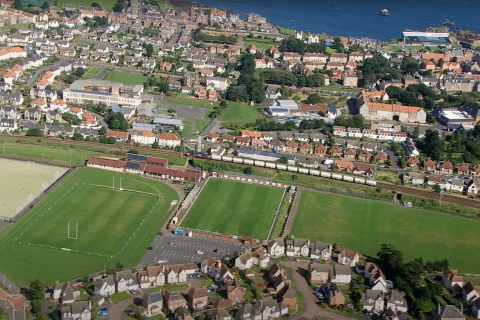Fast Corridor is the future for rail freight, and MSC knows it

MSC launched two new Fast Corridor trains to connect the Gioia Tauro port to the North of Italy. Tests have in fact started for Fast Corridor trains for the Padova Interporto-Trieste route and La Spezia-Bologna route.
MSC has recently activated Fast Corridor trains from Gioia Tauro port to Bologna Interporto (tractioned by Ferrotramviria for Medway Italia) and Padova Interporto (tractioned by Mercitalia). Each train has a frequency of one trip every three weeks, with the possibility of increasing the number of trips in the coming months.
What is Fast Corridor?
Fast Corridor can be considered as an immaterial infrastructure that allows for a faster and more efficient intermodal logistics system. Also known as customs corridors, it is transforming traditional customs into Customs 4.0. In other words, thanks to Fast Corridor it is not necessary to carry out customs operations at the destination port anymore.
Through geolocation devices, in fact, containers can now be digitally tracked in real-time. Fast Corridor, therefore, makes it possible to carry out customs operations directly at the logistics hub. This means that ports will be less congested, and customs bureaucratic operations will be faster.
Moreover, containers will have shorter stops in the ports, reducing the customers’ expenses and transit times. Fast Corridor also offers greater security, thanks to the implementation of real-time tracking technology with traditional customs controls.
The future looks bright for Gioia Tauro
The new MSC connections from Gioia Tauro port to Bologna and Padova follow the trend that the company has had so far when it comes to expanding the network of the Calabrese port. In fact, at the beginning of the year, MSC started this expansion process by inaugurating two new lines connecting Gioia Tauro with Nola and Bari.
Gioia Tauro is therefore becoming less of a transshipment hub and more of a gateway for import-export shipment. The network enlargement aims to bypass over-congested docks, such as the La Spezia port which has introduced surcharges for containers moved on the road.
MSC founder Gianluigi Aponte states that the company is planning on reaching 3,5 million TEUs by the end of 2022 and 4,5 in the next two years.
More MSC projects
MSC is planning on providing more trains to ease the transition from road to rail freight transport. In addition to tests for the Padova-Trieste and the La Spezia-Bologna routes, MSC is also currently testing a new train to connect the Genova and La Spezia ports with the Agognate terminal.
On the Adriatic side, Medway Italia has recently activated a rail freight route connecting the Trieste Marine Terminal with the hub in Jesi. The train, tractioned by Medway Italia, has a biweekly frequency and offers a valid alternative to sea shipments.
Also read:
- Medway Italia to start transporting goods between Belgium-Germany
- MSC establishes Medway Belgium to expand rail freight in northern Europe
You just read one of our premium articles free of charge
Want full access? Take advantage of our exclusive offer




